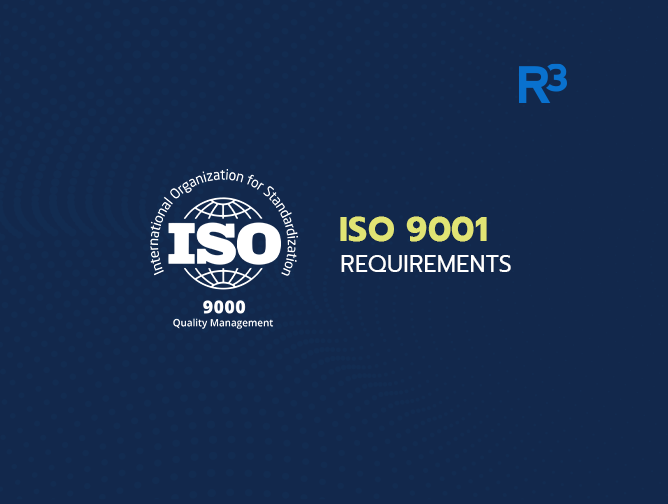ISO 9001 is a widely recognized standard for quality management systems (QMS) that helps organizations demonstrate their ability to consistently provide products and services that meet customer and regulatory requirements. To achieve ISO 9001 certification, organizations must comply with a set of requirements that cover various aspects of their operations, from leadership and strategy to monitoring and improvement.
In this blog post, we will explore some of the key ISO 9001 requirements and how they can benefit your organization.
Leadership and commitment
ISO 9001 places a strong emphasis on leadership and commitment from top management. This includes ensuring that the quality policy and objectives are established and communicated throughout the organization, that adequate resources are provided, and that regular reviews are conducted to assess the effectiveness of the QMS. By demonstrating leadership and commitment to quality, organizations can create a culture that values continuous improvement and customer satisfaction.
Customer focus
Another important requirement of ISO 9001 is customer focus. This involves understanding the needs and expectations of customers and ensuring that products and services meet those requirements. To achieve this, organizations must establish processes for gathering and analyzing customer feedback, as well as monitoring and measuring customer satisfaction. By focusing on customer needs and expectations, organizations can improve customer loyalty and retention, which can lead to increased sales and profitability.
Process approach
ISO 9001 requires organizations to adopt a process approach to quality management. This involves identifying and managing the various processes that contribute to the delivery of products and services, and ensuring that they are effective and efficient. By adopting a process approach, organizations can improve consistency and reduce variability in their operations, which can lead to improved quality and customer satisfaction.
Risk-based thinking
ISO 9001 also requires organizations to adopt a risk-based approach to quality management. This involves identifying and assessing the risks and opportunities associated with the organization’s operations, and taking appropriate actions to address them. By adopting a risk-based approach, organizations can improve their ability to prevent problems and respond to changing conditions, which can help them stay competitive and adapt to new challenges.
Continual improvement
Finally, ISO 9001 requires organizations to establish processes for continual improvement. This involves regularly reviewing the QMS to identify opportunities for improvement, and taking action to address them. By continually improving their processes and systems, organizations can improve their ability to meet customer needs and expectations, reduce costs, and increase efficiency.
Benefits of ISO 9001 certification
ISO 9001 certification can provide a number of benefits to organizations, including:
- Improved customer satisfaction: By focusing on customer needs and expectations and continuously improving processes, organizations can improve customer satisfaction and loyalty.
- Increased efficiency and profitability: By adopting a process approach and continually improving operations, organizations can reduce waste, improve efficiency, and increase profitability.
- Enhanced reputation: ISO 9001 certification is widely recognized and respected, and can enhance an organization’s reputation and credibility in the marketplace.
- Better risk management: By adopting a risk-based approach to quality management, organizations can identify and address potential problems before they occur, reducing the likelihood of costly errors and delays.
- Improved employee engagement: By involving employees in the development and implementation of the QMS, organizations can improve employee engagement and satisfaction, which can lead to increased productivity and retention.
ISO 9001 certification is a valuable tool for organizations looking to improve their quality management systems and demonstrate their commitment to customer satisfaction and continuous improvement. By complying with the requirements of the standard, organizations can improve efficiency, reduce waste, and enhance their reputation, leading to increased profitability and competitiveness. Whether you are just starting to develop your QMS or looking to improve an existing system, ISO 9001 certification can provide a framework for success.


